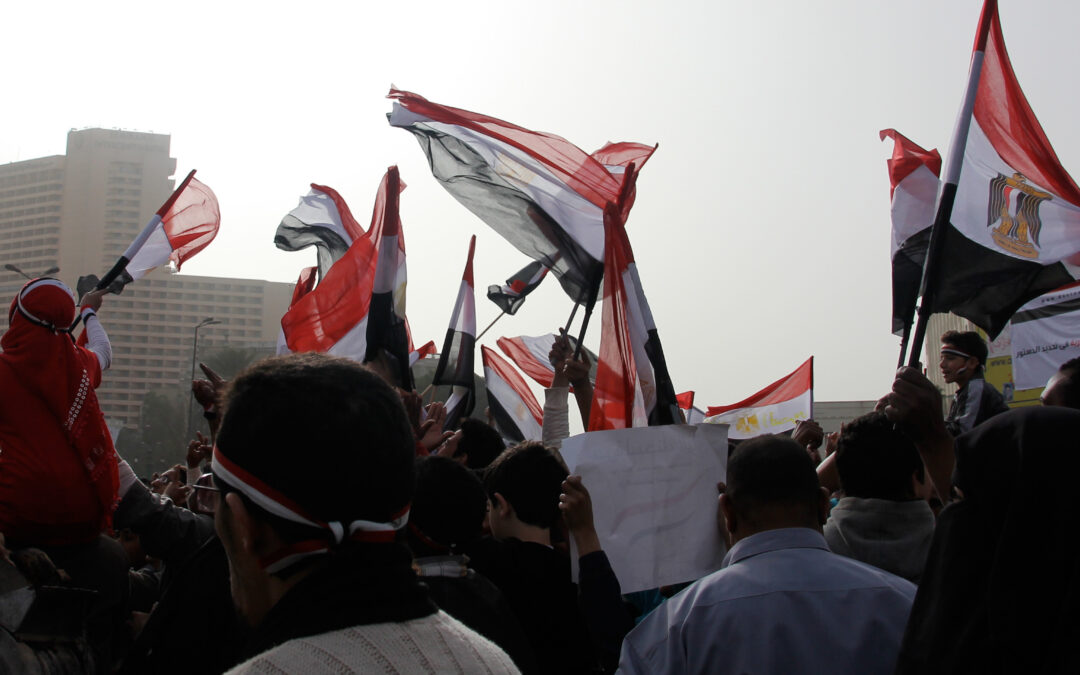
May 31, 2017 | News
The ICJ today called on the Egyptian authorities to act immediately to repeal the law on civic associations.
The law was adopted by Egypt’s Parliament on 15 November 2016 and signed into law by President El-Sisi on 29 May 2017.
Until the law is repealed, the authorities should desist from enforcing it, the ICJ says.
The law effectively prohibits most Egyptian human rights non-governmental organizations (NGOs) from registering and working in Egypt, stipulating that civic associations’ work shall take place in the fields of development and social welfare consistent with “the State’s plans and its developmental needs and priorities.”
Egyptian and international NGOs are also forbidden to advocate against any law or its implementation, as well as to carry out “political activities” or any that “harm national security, public order, public morals or public health.”
They are prohibited from conducting public surveys, research or reports without permission and approval of the results of such work must be given by the authorities prior to publication (articles 14, 87).
The law also provides for an entity to be formed by presidential decree from representatives of three security bodies, which will decide on all matters related to NGO funding, the registration and issues relating to the work of international NGOs, and cooperation between Egyptian associations and any foreign body.
“The law on civic associations, if implemented in its present form, would be tantamount to an official death certificate of independent civil society in Egypt,” said Said Benarbia, ICJ Middle East and North Africa Director.
“By signing it into law, President El-Sisi is silencing the very organizations that could act as a check on the abusive and arbitrary exercise of his power,” he added.
The adoption of this repressive law is just the latest measure in a sustained, relentless campaign by Egypt’s military and executive authorities aimed at dismantling Egyptian civil society through highly politicized judicial proceedings and arbitrary travel bans against NGOs and human rights defenders.
For instance, the foreign funding case taken against NGOs (no. 173/2011) saw leading Egyptian human rights organizations, such as the Cairo Institute for Human Rights Studies (CIHRS), the Arabic Network for Human Rights Information (ANHRI) and the Hicham Mubrak Law Center (HMLC), subject to arbitrary investigations.
The grounds included “receiving funds to harm national interests and destroy the basic foundations of the state (the army, police, and judiciary),” “establishing an entity operating as a civic association without official registration,” and “income tax evasion.”
Four of these organizations and six NGO directors/board members have been subjected to asset freezes.
In the last two months, many NGO staff and directors have been summoned for interrogation by investigative judges, including ICJ partners Mustapha El-Hassan, Director of HMLC, Gamel Eid, Founder and Director of ANHRI, and Mohamed Zaree, CIHRS’ Programme Director and short-listed candidate for the Martin Ennals Award 2017.
The ICJ has previously documented how the Egyptian authorities have used the justice system as a repressive tool in their efforts to silence many of those suspected of opposing them.
“Egyptian authorities must comply with their obligations under international law and put an immediate end to their campaign to silence human rights defenders and NGOs. A first step in that direction would be the immediate repeal of the law on civic associations,” Benarbia said.
Contact
Said Benarbia, Director of the ICJ Middle East and North Africa Programme, t: +41 22 979 38 17: said.benarbia(a)icj.org
Egypt-NGO Law-News-Press release-ARA (Press release in Arabic, PDF)
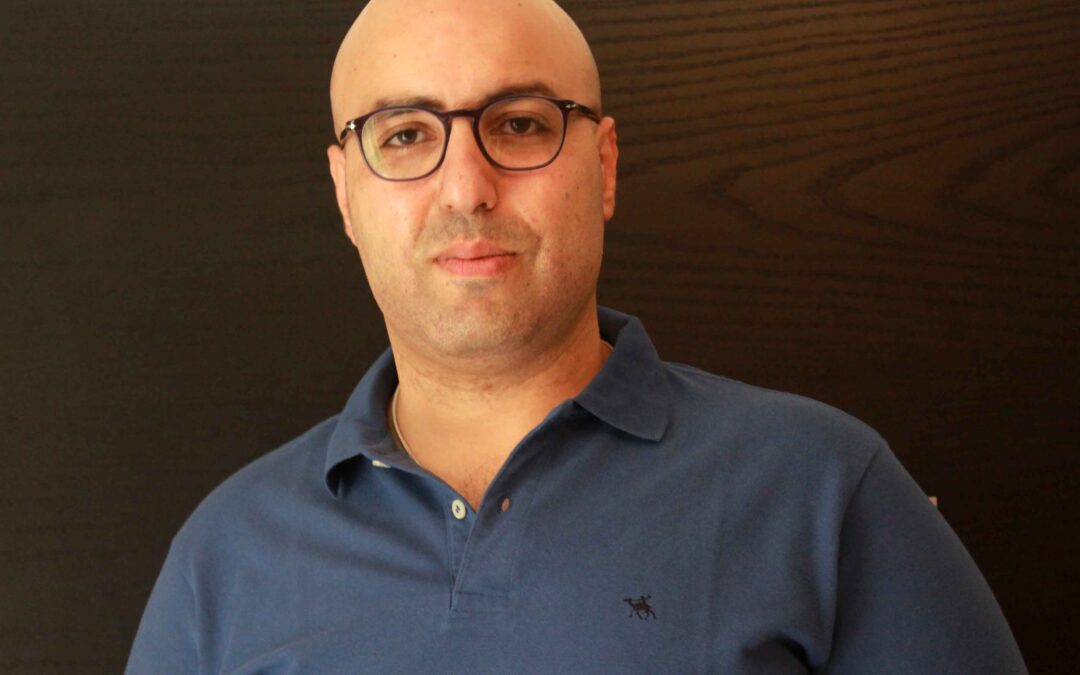
Apr 26, 2017 | News
Mohamed Zaree (Egypt, photo), FreeThe5KH (Cambodia) and Karla Avelar (El Salvador) will compete for this prestigious award given to human rights defenders who have shown deep commitment and face great personal risk. The ICJ is member of the MEA Jury.
Selected by the International Human Rights Community (members of the jury are the ICJ, Amnesty International, Human Rights Watch, Human Rights First, International Federation for Human Rights, World Organisation Against Torture, Front Line Defenders, EWDE Germany, International Service for Human Rights and HURIDOCS), the final nominees for the Martin Ennals Award for Human Rights Defenders (MEA) are known:
- Mohamed Zaree is the Egypt Country Director for the Cairo Institute for Human Rights Studies (CIHRS), responsible for CIHRS’s legal research, media outreach and national advocacy. CIHRS’s work was influential in the Arab world particularly Egypt, which resulted in death threats to its director. This forced the CIHRS executive director and regional staff to move abroad to continue their work. Mohamed chose to stay and is now banned from travel. He is a legal scholar coordinating research to challenge laws designed to limit NGOs activities working on human rights, such as freedom of expression and assembly. He is widely seen a unifying figure bringing together the human rights community in Egypt to advocate with a common approach.
- FreeThe5KH are five Human Rights Defenders who have been in pre-trial detention for almost one year. This is linked to their work with the Cambodian Human Rights and Development Association (ADHOC). International bodies like the UN Working Group on Arbitrary Detention and UN Special Rapporteurs have repeatedly called for their immediate and unconditional release, and a stop to judicial harassment of human rights defenders in Cambodia based on their legitimate human rights work. This comes in the context of an increasingly severe crackdown on civil society and the political opposition in Cambodia.
- Karla Avelar, a transgender woman in El Salvador, grew up on the streets of San Salvador, suffering discrimination, violence, exploitation, and rape. She was imprisoned when she defended herself, and then regularly abused by fellow prisoners with the knowledge and even participation of the prison authorities. With three others, she founded COMCAVIS TRANS, which was created to represent, defend, and promote the human rights of LGBTI persons, with a focus on those living with HIV, as she does. She works to change legislation and the authorities’ practices, by holding them publicly to account.
Mohammed Zaree said: “Our hopes were high following the Egyptian revolution in 2011; we don’t know how the situation has instead deteriorated to such an extent. Today, we are battling human rights violations that are worse than before 2011, and challenging the normalization and acceptance of these atrocities.”
“Killing almost 1000 citizens in few hours, arresting almost 40,000 others, innocents dying in Egyptian prisons; is not the norm and we will not allow it to become so. We human rights defenders are fighting these abuses at risk of indefinite imprisonment,” he added.
The main award of the human rights movement, and as such labelled as the Nobel Price for human rights, the Martin Ennals Award aims to protect human rights defenders through increased visibility.
The Award will be presented on 10 October 2017 at a ceremony hosted by the City of Geneva.
Contact
Olivier van Bogaert, Director Media & Communications, ICJ representative in the MEA Jury, t: +41 22 979 38 08 ; e: olivier.vanbogaert(a)icj.org
Michael Khambatta, Director, Martin Ennals Foundation, t: +41 79 474 8208 ; e: khambatta(a)martinennalsaward.org
Background information
Egypt-MEA Finalists 2017 MZaree Bio-2017-ENG (Mohammed Zaree bio, in PDF)
Cambodia-MEA 2017 Finalists FreeThe5KH Bio-2017-ENG (FreeThe5KH backgrounder, in PDF)
Salvador-MEA 2017 Finalists KAvelar Bio-2017-ENG (Karla Avelar bio, in PDF)
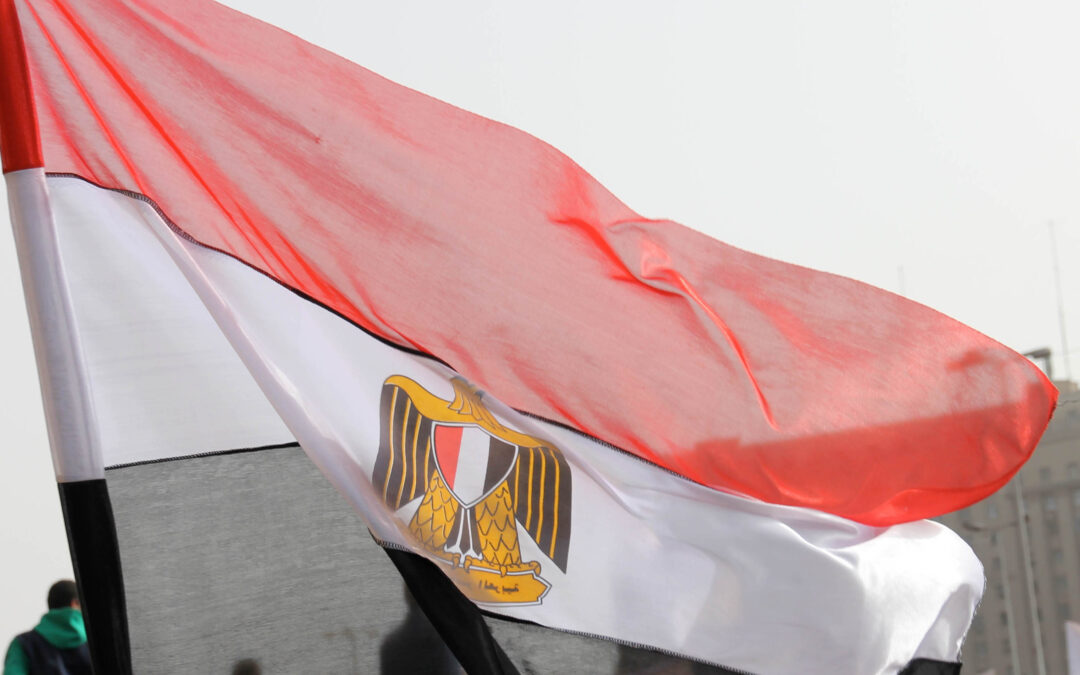
Nov 25, 2016 | Advocacy
The ICJ today joined a group of 60 organizations condemning a new law that would further repress civil society organizations and human rights advocacy in the country, and calling on the Government to stop efforts to silence civil society.The NGO statement follows urgent warnings from the UN Special Rapporteurs on Freedom of Association, on Freedom of Expression, and on Human Rights Defenders that, if implemented, the law would “devastate” civil society in the country.
The full NGO statement can be downloaded in PDF format here: egypt-ngolaw-openletter-2016
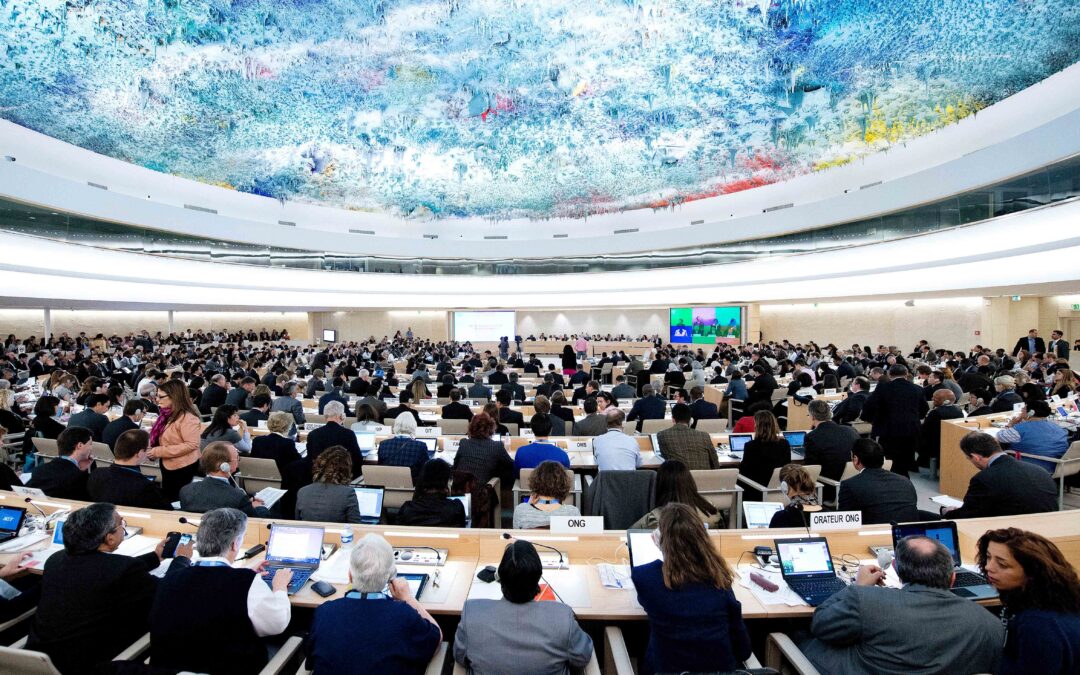
Sep 26, 2016 | Advocacy, Non-legal submissions
The ICJ today at the UN Human Rights Council, joined other organisations to condemn the increasing attacks aimed at deterring NGOs from exposing human rights violations.
The statement was delivered by the leading international NGO the International Service for Human Rights (ISHR), on behalf of ICJ, Amnesty International, Asian Forum for Human Rights and Development (FORUM-ASIA), Centros de Estudios Legales y Sociales (CELS), Conectas Direitos Humanos, East and Horn of Africa Human Rights Defenders Programme (EHAHRDP), and Gulf Centre for Human Rights (GCHR), during a general debate on Follow up to the Vienna Declaration and Programme of Action (VDPA).
The organisations stated as follows:
“The failure of States to protect in these instanes is incompatible with the VDPA’s recognition of the ‘important role of non-governmental organisations in the promotion of all human rights’, that NGOs should be able to play this role ‘without interference’, and that they ‘enjoy the rights and freedoms recognised in the Universal Declaration of Human Rights’.
One example of such interference is the ruling on 17 September by a Cairo Criminal Court to freeze the personal bank accounts of five Egyptian human rights defenders – Bahey el din Hassan, Hossam Bahgat, Gamal Eid, Mostafa El-Hassan, and Abdel Hafiz Tayel – as part of the ongoing investigations into case no.173, also known as the foreign funding case.
The court also froze the bank accounts of three human rights NGOs: the Cairo Institute for Human Rights Studies, Hisham Mubarak Law Center, and Center for the Right to Education.
As a result, a judicial committee is now expected to manage the funds of these independent NGOs and defenders, as well as have full access to their records and databases of the NGOs, including files related to victims of human rights violations.
The VDPA makes clear that the ‘administration of justice, … especially, an independent judiciary and legal profession in full conformity with applicable standards contained in international human rights instruments, are essential to the full and non-discriminatory realization of human rights’.
To illustrate: In Egypt, the judiciary has been used as a tool in the ongoing crackdown on civil society, systematically failing to respect fair procedures. None of the individuals or organizations accused have thus far been permitted to view their entire case file, nor to present their defense before the investigative judges. Further, the court relied for its verdict on allegedly falsified investigations compiled by Egypt’s National Security Agency (NSA), and disregarded all material evidence presented by the defendants.
Such systematic attacks on civil society are not only illegal, but ill-advised and absolutely inimical to a State’s national interests, peace and prosperity.
We call on Egyptian authorities to immediately and unconditionally reverse the ruling and drop the investigation into case no. 173. We also stress that Egyptian human rights defenders need the support of this Council, particularly those States that have repeatedly expressed their commitment to protecting HRDs. We urge States to demonstrate their genuine leadership in this regard.”
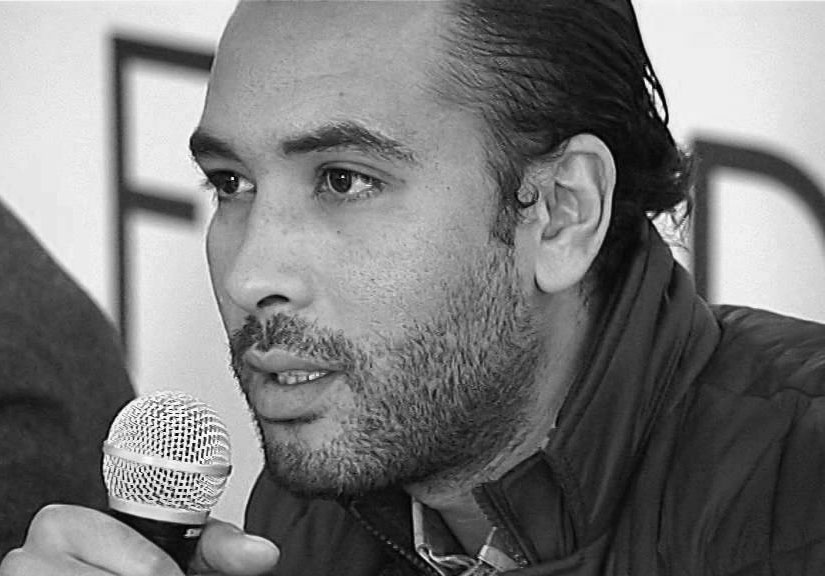
May 10, 2016 | News
The ICJ today called on the Egyptian authorities to immediately release human rights lawyer Malek Adly and to drop all charges against him. He was arrested on Thursday 5 May 2016, pursuant to an arrest warrant.
Malek Adly has been charged with a number of offences, including “attempting to overthrow the regime,” “spreading false rumors,” and “using force against a public servant.”
The Prosecuting authorities have not provided information on specific behaviour that would constitute criminal conduct.
The ICJ is concerned that the charges may be in retaliation for Malek Adly’s work as a lawyer and human rights defender, and are aimed to chill him and others from engaging in work perceived as threatening to or disfavoured by Egyptian authorities.
They came at the backdrop of his work as a human rights lawyer, his critical views on the rule of law situation in Egypt, and his legitimate and peaceful exercise of freedom of expression and assembly in opposing transferring the sovereignty of Tiran and Sanafir islands from Egypt to Saudi Arabia, the ICJ says.
“Malek Adly’s arrest, detention and prosecution for carrying out his work as a lawyer and human rights defender and for peacefully expressing his views is yet another attempt by the Egyptian regime to muzzle lawyers, the last line of defence for victims of human rights violations in Egypt,” said Said Benarbia, Director of the ICJ Middle East and North Africa Programme.
“The regime’s crackdown on fundamental rights and freedoms has been worryingly extended to the very lawyers whose role is to challenge and protect against such crackdown,” he added.
Over the last three years, the ICJ has documented numerous cases of lawyers who have been subjected to human rights violations and reprisals in relation to the representation of their clients.
These include the cases lawyers Imam Afifi and Karim Hamdi who were allegedly subjected to torture and subsequently died while in police custody.
International standards aiming to safeguard the role of lawyers provide that States have a duty to ensure that lawyers are able to perform their functions “without intimidation, hindrance, harassment or improper interference” and that lawyers must not be subject to prosecution or other sanction for carrying out their professional responsibilities, the Geneva-based organization reminds.
International standards on human rights defenders require States protect human rights defenders from attacks, threats, retaliation and arbitrary action.
The Egypt 2014 Constitution guarantees the “independence of the lawyer’s profession and the protection of its interests as a guarantee to protecting the right to defence”. In addition, it prohibits the arrest of a lawyer while he or she is exercising the right to defence, except in flagrante delicto crimes.
“The Egyptian authorities must live up to their obligations under the Constitution and international law and put an immediate end to their attacks against lawyers,” concluded Benarbia.
Contact
Nader Diab, Associate Legal Adviser of the ICJ Middle East and North Africa Programme, t: +216 51727023; e: nader.diab(a)icj.org
Egypt-HR Lawyer MalekAdly-News-Press Releases-2016-ARA (full text in Arabic, PDF)









